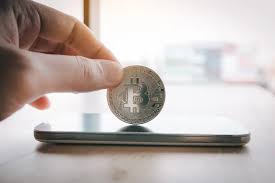
Yes, Trust Wallet is safe, offering secure private key control, encryption, and biometric protection for your assets.
Trust Wallet’s Security Features
What Are the Key Security Features of Trust Wallet?
-
Private Key Control: Trust Wallet is non-custodial, giving users full control over their private keys.
-
Encryption: Advanced encryption secures your data and private keys on your device.
-
Backup and Recovery: A 12-word recovery phrase allows you to securely back up and restore your wallet.
-
Biometric and PIN Protection: Add extra security with PIN codes or biometric authentication.
How Does Trust Wallet Ensure Private Key Protection?
-
Local Storage: Private keys are stored securely on your device, not on centralized servers.
-
User-Controlled Keys: Only you have access to your private keys.
-
Secure Backup: The recovery phrase ensures wallet restoration in case of loss.
-
Open-Source Code: Regular audits by security experts keep the app secure.

Is Trust Wallet Non-Custodial?
What Does Non-Custodial Mean for Your Crypto Assets?
-
User Control of Private Keys: Non-custodial means that Trust Wallet does not store or manage your private keys. You have full control over your keys and, therefore, your crypto assets.
-
No Third-Party Involvement: Since Trust Wallet doesn’t hold your funds, you’re not reliant on a third party (like an exchange) to access or manage your assets. Only you have access to your wallet and funds.
How Does Trust Wallet Give You Full Control Over Your Funds?
-
Private Key Ownership: Trust Wallet allows you to generate and store your private keys securely on your device, ensuring only you can access and manage your assets.
-
No Custodial Risk: Trust Wallet’s non-custodial nature means that there’s no risk of losing access to your funds through a third party, such as an exchange going down or being hacked.
-
Backup and Recovery: With the 12-word recovery phrase, you can restore access to your wallet at any time, ensuring you maintain full control over your funds even if your device is lost or damaged.

How Does Trust Wallet Protect User Data?
What Encryption Methods Does Trust Wallet Use for Security?
-
End-to-End Encryption: Trust Wallet employs end-to-end encryption to secure sensitive information like private keys and transaction details, ensuring that data is protected both during storage and transmission.
-
AES Encryption: Advanced Encryption Standard (AES) is used to encrypt user data locally on your device, preventing unauthorized access to private information.
-
No Data Collection: As a non-custodial wallet, Trust Wallet does not collect or store any personal data on centralized servers, ensuring that only you have control over your assets and information.
Is My Personal Data Safe When Using Trust Wallet?
-
No Personal Data Storage: Trust Wallet doesn’t store or access your personal information. All data, including private keys and recovery phrases, remain securely on your device.
-
Decentralized and Secure: By not relying on third-party servers, Trust Wallet reduces the risk of personal data exposure, offering a more secure way to manage your assets.
-
Biometric and PIN Protection: Trust Wallet provides additional security options like PIN codes and biometric authentication (fingerprint or face recognition) to prevent unauthorized access to your wallet.
How Trust Wallet Prevents Unauthorized Access
What Security Measures Are in Place for Account Protection?
-
Private Key Control: Trust Wallet is non-custodial, meaning only you control your private keys, preventing unauthorized access by third parties.
-
Biometric and PIN Protection: Trust Wallet allows users to secure their wallet with biometric authentication (fingerprint or face recognition) and a PIN, adding layers of security to prevent unauthorized access.
-
Encryption: All sensitive data, including private keys and transaction information, are encrypted on your device, ensuring that no one can access your wallet data without permission.
-
Backup and Recovery: A 12-word recovery phrase ensures that even if your device is lost or stolen, you can restore your wallet and access your assets securely.
How Can I Set Up Additional Security Features in Trust Wallet?
-
Enable PIN Code: You can set up a PIN code to prevent unauthorized access to your wallet, ensuring that only you can unlock the app.
-
Activate Biometric Authentication: Trust Wallet supports fingerprint or facial recognition as an additional layer of security, making it more difficult for unauthorized individuals to access your funds.
-
Backup Your Wallet: Ensure that you securely back up your recovery phrase. This ensures you can restore your wallet in case your device is lost or compromised.
-
Set Transaction Limits: For additional control over your wallet’s security, you can set limits on transactions or require additional approval for certain actions.

Trust Wallet’s Backup and Recovery Options
How Does Trust Wallet Handle Backup and Recovery?
-
12-Word Recovery Phrase: Trust Wallet provides a 12-word recovery phrase when you create your wallet. This phrase is used to back up your wallet and restore access if needed.
-
Local Backup: The recovery phrase is stored securely on your device, ensuring you can restore your wallet to any device with the same phrase, without needing third-party services.
-
No Centralized Backup: Trust Wallet does not store any backup data on centralized servers. The backup is entirely in your control, ensuring that only you can restore or recover your wallet.
What Happens if I Lose My Trust Wallet Access?
-
Using the Recovery Phrase: If you lose access to your Trust Wallet due to a lost or damaged device, you can restore your wallet on a new device using your 12-word recovery phrase.
-
Security: Since Trust Wallet is non-custodial, only you have access to your recovery phrase, ensuring that only you can restore your wallet and funds.
-
No Customer Support for Lost Wallets: Trust Wallet cannot recover a wallet for you, as they do not have access to your recovery phrase or private keys. It’s essential to store your recovery phrase securely and privately to avoid losing access.

How Secure Are Transactions on Trust Wallet?
Does Trust Wallet Have Transaction Verification?
-
Transaction Review: Trust Wallet provides a review screen before confirming any transaction. This allows users to check the recipient address, amount, and network fees to ensure accuracy.
-
Confirmation Step: Every transaction requires user confirmation, ensuring that transactions are intentional and not initiated by unauthorized parties.
-
Transaction Details: Trust Wallet displays transaction details such as gas fees and token information, enabling users to verify every aspect before finalizing the transfer.
How Does Trust Wallet Ensure Safe Crypto Transfers?
-
Private Key Control: Trust Wallet ensures that only you have access to your private keys, which are necessary for signing and authorizing transactions. This eliminates the risk of unauthorized access.
-
Encrypted Data: All transaction data is encrypted on your device, ensuring that sensitive information remains secure during transfers.
-
Secure Network Connections: Trust Wallet interacts with blockchain networks securely through encrypted channels, reducing the risk of attacks during the transaction process.
-
Two-Factor Authentication: For supported services, Trust Wallet allows users to enable two-factor authentication (2FA) for added security when accessing external platforms or services linked to the wallet.

Is Trust Wallet Safe for Storing NFTs and Tokens?
How Does Trust Wallet Securely Store NFTs?
-
Non-Custodial Wallet: Trust Wallet is a non-custodial wallet, meaning you have full control over your NFTs and tokens. Your private keys, which are used to access and manage your NFTs, are stored securely on your device.
-
Local Storage: NFTs are stored locally on your device and are never sent to centralized servers, minimizing the risk of hacking or unauthorized access.
-
Encryption: Trust Wallet encrypts your private keys and transaction data, ensuring that your NFTs are secure and inaccessible to unauthorized parties.
What Features Protect Tokens and NFTs in Trust Wallet?
-
Private Key Control: Trust Wallet gives you control over your private keys, which ensures that only you can access and manage your NFTs and tokens.
-
Biometric and PIN Protection: You can set up additional layers of security, such as PIN codes or biometric authentication (fingerprint or face recognition), to protect access to your wallet.
-
Backup and Recovery: Trust Wallet provides a 12-word recovery phrase to back up your wallet. This ensures that even if you lose access to your device, you can recover your NFTs and tokens by restoring your wallet on a new device.
-
Transaction Verification: Every transaction involving NFTs or tokens requires confirmation from you, ensuring that unauthorized transfers do not occur.
How does Trust Wallet protect my private keys?
Trust Wallet uses local storage for private keys, ensuring they are stored securely on your device and never exposed to external servers.
Does Trust Wallet offer biometric security?
Yes, Trust Wallet supports biometric authentication, such as fingerprint or face recognition, for added security when accessing your wallet.
Is my transaction data safe with Trust Wallet?
Trust Wallet encrypts all transaction data on your device, ensuring your data is secure during transfers and interactions with the blockchain.
Leave a Reply